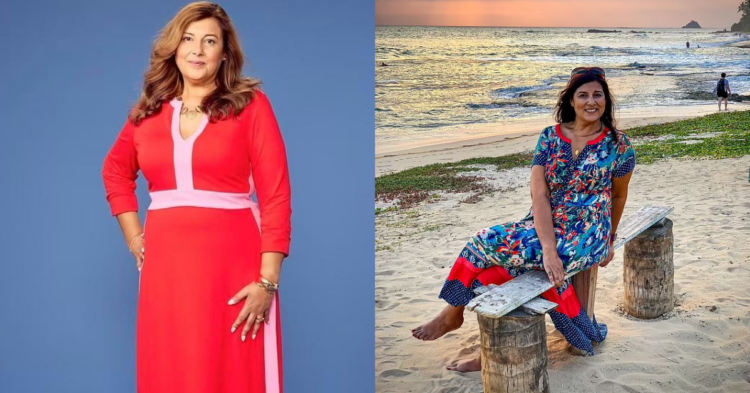In 2004, a tsunami struck the Indian Ocean on Boxing Day, tragically killing more than 230,000 people within different areas in Thailand, Indonesia, India, and Sri Lanka.
Twenty years later, survivor Ani Naqvi writes in the Daily Mail about an epiphany she had while in the middle of the tsunami that moved her to take action that changed her life forever. She was in Arugam Bay in the east of Sri Lanka when the tsunami hit.
Her memories from that day are clear
Writing about the incident, Naqvi began by sharing that she still thinks about that day.
“It’s now been 20 years since I came within seconds of death on a Sri Lankan beach during the most devastating tsunami on record. But despite the passing of time, my memories of that Boxing Day morning remain shockingly vivid,” she wrote.
She recalled her life before the event
Naqvi admitted that she never thought she’d be able to come out the other end and began recalling what her life was like beforehand.
“In 2004 I was in my early 30s, with a flourishing media career as a journalist and my own home. I should have been happy and fulfilled – I had all the markers of a successful life. But instead I felt ‘grey’ and dissatisfied,” she wrote.
Naqvi had gone on holiday to Sri Lanka

The journalist wrote that she had just come out of an excessively harsh mental space when she landed in the Sri Lanka capital of Colombo.
She had been inconsistently struggling with her mental health throughout her adulthood and thought a month in Sri Lanka would help her “reset and reflect.”
Her holiday was perfect up until Christmas

Having gone to stay at a hotel run by her friend, Naqvi stayed in Arugam Bay by the beach. She spent her days listening to the waves and looking at the sky, feeling the weight lift off her shoulders.
Naqvi shares that she spent Christmas with her friend and her husband as well as their guests. “Climbing into bed that night, I felt relaxed and happy,” she wrote.
She woke up to a roaring noise
The next thing to happen was unexpected as she woke up to a roaring sound and heard people shouting.
“Suddenly, the door to my hut burst open and water began to pour in, submerging my bed within seconds. With no time to escape, I found myself completely underwater, being thrown around and battered by debris and furniture,” she wrote.
Naqvi became engrossed in the water
“My lungs were burning but the water was pitch black and I was completely disorientated, with no idea which way was up,” the journalist wrote of her experience with the Boxing Day tsunami.
“Somehow, I found myself close to the ceiling of the room, my head above the water and I desperately sucked in the air as the sea swirled violently around me,” she added.
In that moment, she had an epiphany
When she was gasping for air, Naqvi shared that she realized she wanted to live.
“It was at that point I felt the urge to live, that this would not be my time to die,” she intimately wrote.
She suffered from PTSD
After surviving a second wave with her friends and being rescued, Naqvi returned to the UK with an emergency passport issued on New Year’s Day.
She suffered from survivor’s guilt, writing, “I kept asking why I was still here when so many weren’t. I felt undeserving of my survival.”
Naqvi decided to become an executive coach

In a career change, Naqvi realized that life is too short and wanted to aid others in facing its challenges, so she became a coach “using evidence-based psychology and teachings from ancient wisdom to help people unlock their potential.”
Giving a clear piece of knowledge to readers, Naqvi ended the story saying, “My advice is to make every decision with your fulfillment at the heart of it and cherish every opportunity for happiness.”
She aims to help others live their lives
Changing her career from journalist to executive coach has helped her achieve her goals of working with people who lead stressful lives to aid them in living life more fully.
“Helping others gives me immense satisfaction and my mission is to change the same number of lives as those that were lost in the tsunami. It’s my way of honoring those who didn’t survive,” she wrote.

















































